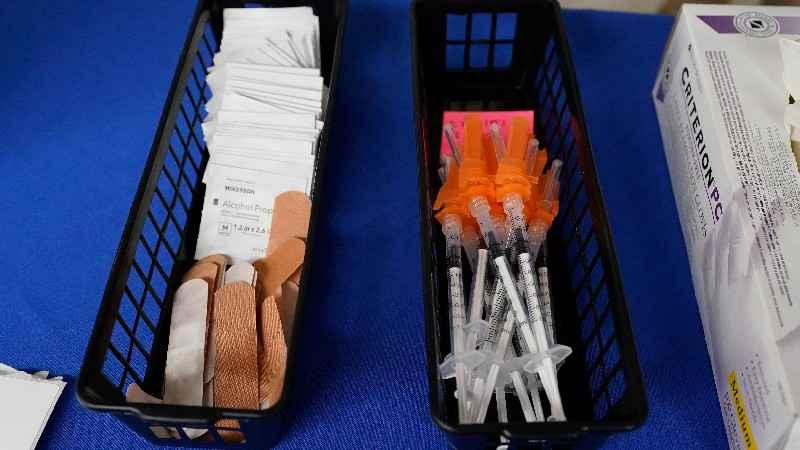‘I think there is some confusion’: Amid talk of a 3rd COVID vaccine shot, a look at who should get another dose
[anvplayer video=”5051573″ station=”998122″]
Could a third COVID shot be the charm?
Dave Fabry, whose wife has Lupus — an immune disorder — says he hopes so.
"She is registered and is slated to get that third dose this weekend," Fabry, from Eden Prairie, said. "It is very clear, in terms of the statement I’ve seen, that immunocompromised people only, are slated for the third dose at the present time."
Fabry says after their health care provider approved that shot for her, he wondered, as a non-immunocompromised spouse, if he would qualify.
So he went online.

FILE - In this June 22, 2021, file photo prepped COVID-19 vaccine filled syringes are at ready for use at a COVID-19 vaccination site at Jackson State University in Jackson, Miss.[AP Photo/Rogelio V. Solis, File]
"I was surprised that I was able to schedule an appointment, which I did cancel after speaking to my health care provider," Fabry said.
People with compromised immune systems are eligible for the third vaccine right now.
Booster shots for everyone else have not been approved yet.
"I think there is some confusion among the public and even in the process of applying for the doses," Fabry declared.
He’s not alone.
"Over the last 48 hours, I’ve heard it four different times in four different systems, in two different states," KSTP Medical Expert Dr. Archelle Georgiou said.
She says she’s been getting a lot of questions about who should get that third shot and when it’s available.
"It seems to me that hospitals and health systems are taking the criteria that people who are immune-compromised can get a third shot and being quite liberal about what the definition of immune-compromised means," Dr. Georgiou explained.
The Centers for Disease Control and Prevention says people who are immunocompromised can get that shot right away. That group includes cancer patients, organ and some stem cell recipients, people with an advanced or untreated HIV infection, and those taking medicine suppressing the immune system — only about 3% of the population.
But what about everyone else?
The Biden administration says tens of millions of booster shots will be available the week of Sept. 20.
"We are planning for Americans to receive booster shots, starting next month, to maximize vaccine-induced protection," CDC Director Dr. Rochelle Walensky told reporters. "Our plan is to protect the American people and stay ahead of this virus."
The trouble is, that rollout hasn’t been approved by the U.S. Food and Drug Administration or formally recommended by the CDC.
"From a safety perspective, we also want to be cautious that we go through the proper steps," Dr. Kevin Best, with Allina Health’s vaccine committee, explained. "I acknowledge it gets a little confusing right now and when reports kind of come out early because everyone’s excited to learn about it."
The CDC says the vaccines are working but the effectiveness drops over time.
The health agency says boosters would be needed around eight months after getting the second dose of the Pfizer or Moderna vaccine, but again, that hasn’t yet been approved by federal health officials.
Meantime, Dr. Georgiou says the FDA could release its recommendation in a review as early as next week.
KSTP asked if the booster does become widely available after that, when should people get their third shot?
She says it’s important to wait for accurate information from expert studies.
"Let’s put them all together, which is what the FDA does, and do a comprehensive complete review and come up with the best guidance about what people should do around boosters," Dr. Georgiou said.